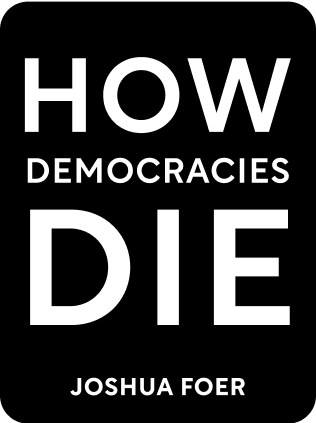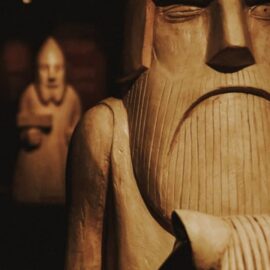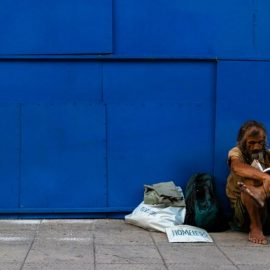

This article is an excerpt from the Shortform book guide to "How Democracies Die" by Steven Levitsky and Daniel Ziblatt. Shortform has the world's best summaries and analyses of books you should be reading.
Like this article? Sign up for a free trial here .
What’s a democracy coalition? How can it help the U.S. refocus and reprioritize democratic norms and principles?
The U.S. political environment is highly polarized and currently under threat from anti-democratic forces. It’s possible that a democratic coalition that includes a diverse, bipartisan group of people could refocus on democratic ideals.
Read more about the current state of U.S. democracy and how a coalition can help.
Broad Coalitions for Democracy
If American democracy is under siege, what should its defenders do to preserve it? Those who wish to preserve democracy should use legitimate institutional channels—especially elections—rather than extra-constitutional means to defeat authoritarians. This strengthens faith in democracy. For them to be truly effective, however, pro-democratic forces must overcome the deep structural divisions that have proven so destructive to American democracy.
One strategy is the forging of broad, pro-democratic coalitions that cut across racial, ethnic, religious, and socioeconomic lines. It is not enough to simply build interest groups of like-minded activists. A broad democracy coalition would entail liberals reaching out to conservative businesspeople, evangelicals, gun owners, and other traditional opponents. These groups all have sharp disagreements with one another on a range of issues, but would all potentially stand to lose if authoritarianism and lawlessness gained a stranglehold over the country.
For such a democracy coalition to come together, activists must resist the temptation to impose “litmus tests” on controversial issues like gun rights and abortion. This does not mean abandoning one’s commitment to these ideals, but it does mean putting them aside temporarily to come together and fight for democracy. Today’s allies can be tomorrow’s opponents once normal democratic conditions are restored.
Such coalitions can be enormously beneficial. By their very nature and composition, they can appeal to a broader slice of the country and transcend the partisan divide that is consuming our politics. This partial defusing of partisan tensions can lead to depolarization, which in turn, strengthens democratic norms of mutual toleration and institutional forbearance.
What Republicans Can Do
Extreme partisan polarization is a key driver of the destruction of American democratic norms like mutual respect and institutional forbearance. Much of why the Republican Party is in such a deeply dysfunctional state can be attributed to its ethnic and religious homogeneity. It is overwhelmingly a party of white Christians. Because this once-dominant demographic is shrinking and the party holds little appeal to voters that fall outside of it, party leaders have tried to extract more and more electoral value from this dwindling segment of voters.
They have increasingly done this by open appeals to white identity politics and by measures like voter ID laws and racially motivated gerrymanders that weaken the voting power of non-whites.
As long as it maintains this basic structure, the Republican Party is unable to act as a pro-democratic force—especially in an increasingly diverse society.
Accordingly, the GOP must moderate its hardline right-wing social and economic ideology and abandon its appeals to white nationalism. This can help to broaden its appeal to a more diverse cross-section of the electorate, much of which might be attracted to certain aspects of conservatism, but is turned away by the party’s extremism on cultural issues. Only when it becomes a big-tent party that straddles religious and ethnic lines can the Republican Party resume its function as the center-right tentpole of American democracy.
What Democrats Can Do
For the Democratic Party, the challenges are different. While it is not the main driver of norm-breaking and democratic backsliding, it can play a key role in rescuing America’s democratic political culture.
As the center-left party, Democrats should seek to ameliorate one of the main drivers of extreme polarization—widening income inequality. It is no coincidence that the widening gap between rich and poor and increasing racial diversity over the past four decades has coincided with the sharpening of divisions between the party coalitions. As people feel they are being squeezed and competing with each other for ever-smaller slices of a shrinking pie, they increasingly turn to the politics of resentment.
Democrats should reject their traditional support for means-tested benefits, which are targeted to lower-income people but taper off as one’s income level rises. These programs tend to instill in middle-class people a belief that the government is taking their hard-earned money and giving it to the undeserving poor. And since poverty and race are so inextricably intertwined, means-tested programs add fuel to racial resentment on the part of whites, which is, in turn driving the radicalization of the GOP.
Instead, Democrats should embrace universal benefits like childcare, healthcare, and even a universal basic income. Because everyone benefits from this version of the welfare state, a broader coalition can form in support of it—one that cuts across racial, cultural, and socioeconomic lines.
Goal of a Democracy Coalition: A Shared Enterprise
Ultimately, it will take committed citizens, not a single political leader or party, to renew American democracy. Democracy is a team sport and shared enterprise in which we all participate together. We can either collectively choose to destroy democracy or enable it to thrive in a new, multiracial, multicultural society.
We’ve seen that traditional governing norms like mutual toleration and institutional forbearance were stronger in an earlier age of American politics—but only when the nation’s white majority enjoyed the exclusive privilege of making political decisions. We’ve moved past that era, but the gains of racial equality prompted a backlash that destroyed those norms.
The key is to move American politics to a place where it both embodies strong democratic norms and guarantees effective political representation for all members of a diverse society. Only then will our democracy be on truly solid ground.

———End of Preview———
Like what you just read? Read the rest of the world's best book summary and analysis of Steven Levitsky and Daniel Ziblatt's "How Democracies Die" at Shortform .
Here's what you'll find in our full How Democracies Die summary :
- How shared norms are essential for preserving democracy
- Why the Trump presidency threatened those shared norms
- Why democracy goes beyond individual leaders and parties and must be a shared enterprise among committed individuals






